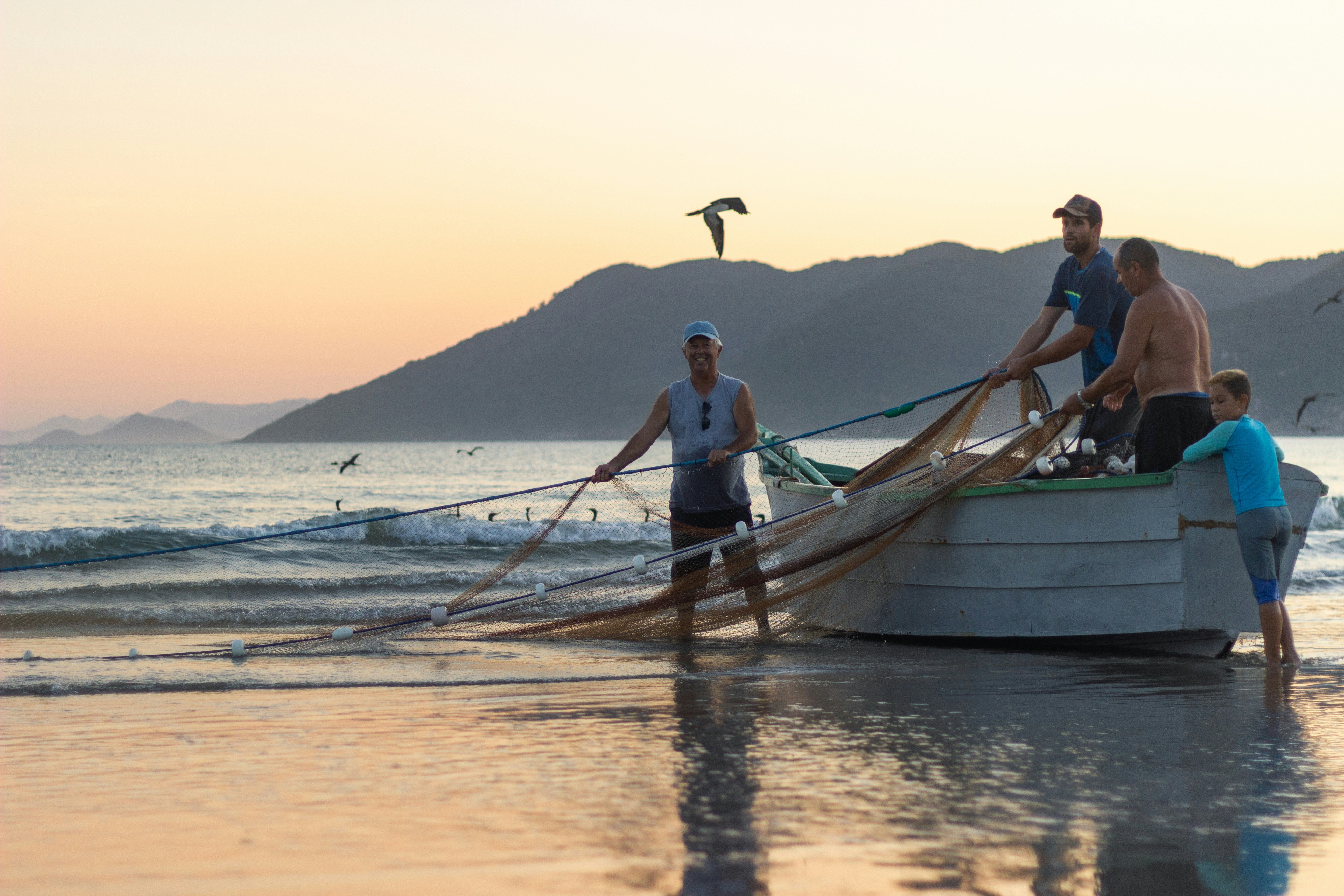
Nusamarin Blue Belt Initiatives
"Building a Sustainable & Resilient Coastal Economy through Impact-Driven Investments"
At NUSAMARIN, we believe that the blue economy is a key driver for sustainable development, food security, carbon neutrality, and energy transformation. Our thesis is built upon strategic investments that maximize economic returns while safeguarding marine ecosystems and empowering coastal communities.
Our philosophy
Our philosophy is embedded in our name. "nusa" means "island" "marin" refers to "marine", meaning "related to the sea". It's primarily used in Indonesian, where it is derived from Sanskrit Language and refers to islands, often associated with the Indonesian homeland ("tanah air"), while "marin" refers to "marine," meaning "related to the sea". Our identity is deeply rooted in our origins—the archipelago region where natural resources from both land and sea are abundant, offering immense opportunities for prosperity. We were born in the archipelago region, where natural resources are abundant in the land and the sea that can bring great prosperity for the people around it.
Our Goal
Better nutrient-rich food resources for all
Better destinations for sustainable tourism escape
Better carbon capture & storage for global carbon footprint
Better energy resources from solar-powered infrastructure
Better sustainable investment for global funds
Better place for coastal communities & livelihoods
1
Onboarding a Sustainable Investment from Global Funds
Catalyzing Growth with Responsible Capital
Despite the immense potential of marine-based industries, many coastal and ocean economies remain underfunded due to investment risks, fragmented supply chains, and lack of scalable models.
Attract global investors interested in sustainable development, climate action, and blue economy initiatives.
Develop structured investment mechanisms (e.g., blue bonds, impact investing, venture capital) to de-risk capital deployment.
Build a consolidated and well-managed financial model to ensure long-term profitability and social impact.
Attract global investors interested in sustainable development, climate action, and blue economy initiatives.Develop structured investment mechanisms (e.g., blue bonds, impact investing, venture capital) to de-risk capital deployment.Build a consolidated and well-managed financial model to ensure long-term profitability and social impact.

2
Better Nutrient-Rich Food Resources for All
Ensuring Food Security through Sustainable Aquaculture & Marine-Based Nutrition
With the global population exceeding 8 billion, the demand for nutrient-rich, high-protein, and sustainable food is increasing. Yet, overfishing, pollution, and inefficient supply chains hinder food security.
Develop sustainable aquaculture models for seafood, seaweed, and alternative protein sources.
Invest in marine-based food innovations, including algae-derived proteins and functional seafood ingredients.
Strengthen traceability & fair-trade practices to create an ethical and transparent seafood market.
Develop sustainable aquaculture models for seafood, seaweed, and alternative protein sources.Invest in marine-based food innovations, including algae-derived proteins and functional seafood ingredients.Strengthen traceability & fair-trade practices to create an ethical and transparent seafood market.

3
Better Destinations for Sustainable Tourism Escape
Transforming Coastal Destinations into Eco-Friendly, Community-Driven Tourism Hubs
Mass tourism has led to environmental degradation, cultural erosion, and economic disparity, leaving local communities with minimal benefits.
Develop eco-resorts, marine adventure hubs, and cultural heritage tourism that prioritize low-carbon footprints and local ownership.
Promote community-based tourism (CBT) where locals directly benefit from tourism revenue.
Ensure biodiversity protection by integrating conservation practices in tourism destinations.
Develop eco-resorts, marine adventure hubs, and cultural heritage tourism that prioritize low-carbon footprints and local ownership.Promote community-based tourism (CBT) where locals directly benefit from tourism revenue.Ensure biodiversity protection by integrating conservation practices in tourism destinations.

4
Better Carbon Capture & Storage for Global Carbon Footprint
Scaling Blue Carbon Solutions through Seaweed & Seagrass Farming
Traditional carbon offsetting methods rely on land-based reforestation, which competes with agriculture and urban development. Oceans provide a more efficient solution for carbon sequestration.
Scale seaweed and seagrass farming for natural carbon capture and commercial sustainability.
Develop blue carbon credit programs to offer companies a verified carbon offset alternative.
Advocate for marine ecosystem conservation policies to integrate blue carbon into global carbon markets.
Scale seaweed and seagrass farming for natural carbon capture and commercial sustainability.Develop blue carbon credit programs to offer companies a verified carbon offset alternative.Advocate for marine ecosystem conservation policies to integrate blue carbon into global carbon markets.

5
Better Energy Resources from Solar-Powered Infrastructure
Bringing Renewable Energy to Coastal Communities for Economic Resilience
Many coastal villages and small islands still lack access to reliable electricity, forcing them to rely on expensive and environmentally harmful diesel generators.
Deploy affordable solar panel systems for coastal households, businesses, and public infrastructure.
Provide solar-powered cold storage solutions to support seafood processing and reduce post-harvest losses.
Partner with renewable energy providers & microfinance institutions to introduce affordable payment models (Pay-As-You-Go, leasing, and cooperative financing).
Deploy affordable solar panel systems for coastal households, businesses, and public infrastructure.Provide solar-powered cold storage solutions to support seafood processing and reduce post-harvest losses.Partner with renewable energy providers & microfinance institutions to introduce affordable payment models (Pay-As-You-Go, leasing, and cooperative financing).

6
A Better Place for Coastal Communities & Livelihoods
Creating Inclusive Economic Opportunities & Long-Term Prosperity
Coastal communities often face economic instability due to climate change, seasonal income, and lack of access to capital, leading to poverty and migration.
Establish local entrepreneurship programs to strengthen coastal businesses.
Build cooperative investment models where communities have ownership in sustainable projects.
Provide training & capacity-building in fisheries, ecotourism, renewable energy, and marine farming.
Establish local entrepreneurship programs to strengthen coastal businesses.Build cooperative investment models where communities have ownership in sustainable projects.Provide training & capacity-building in fisheries, ecotourism, renewable energy, and marine farming.


Investing in a Sustainable Blue Economy
At NUSAMARIN, we believe that sustainability and profitability can go hand in hand. Through strategic investments, innovation, and responsible resource management, we are unlocking the true potential of coastal economies while ensuring a healthier planet for future generations
🌊 Join us in transforming the future of marine-based economies.
📩 Get in touch to explore investment and partnership opportunities.